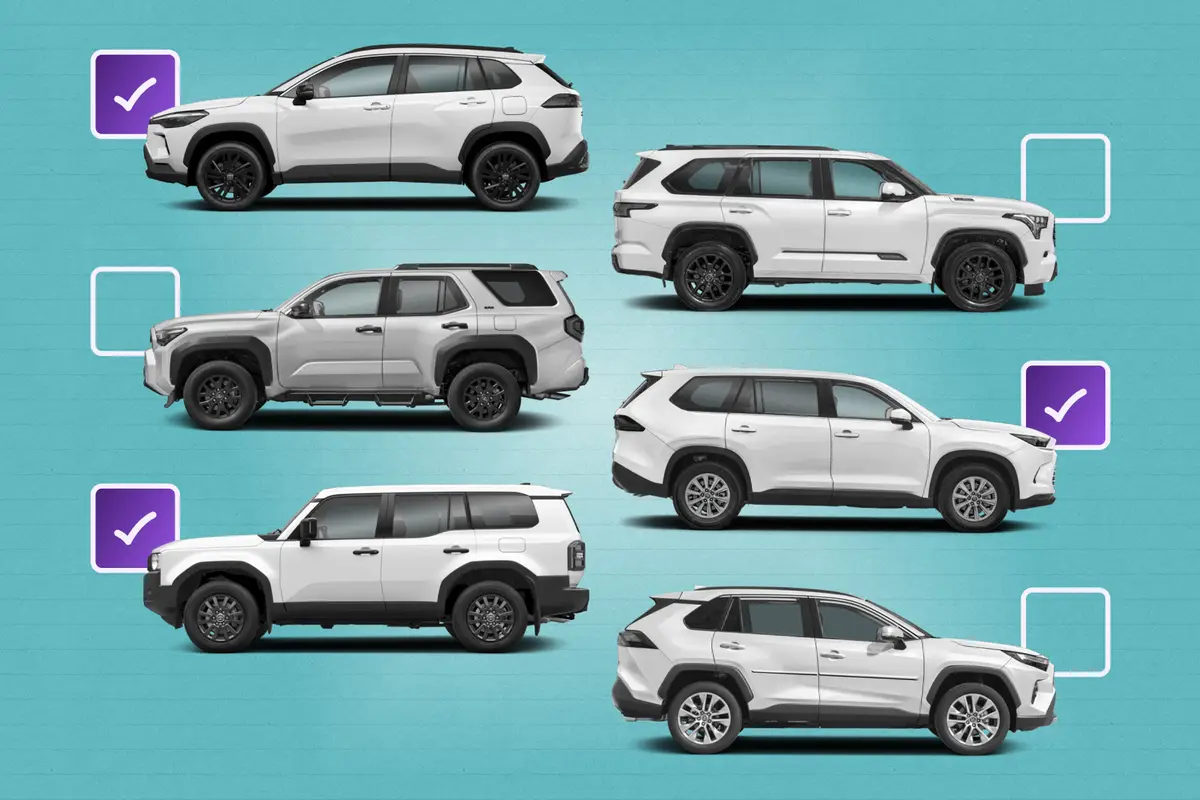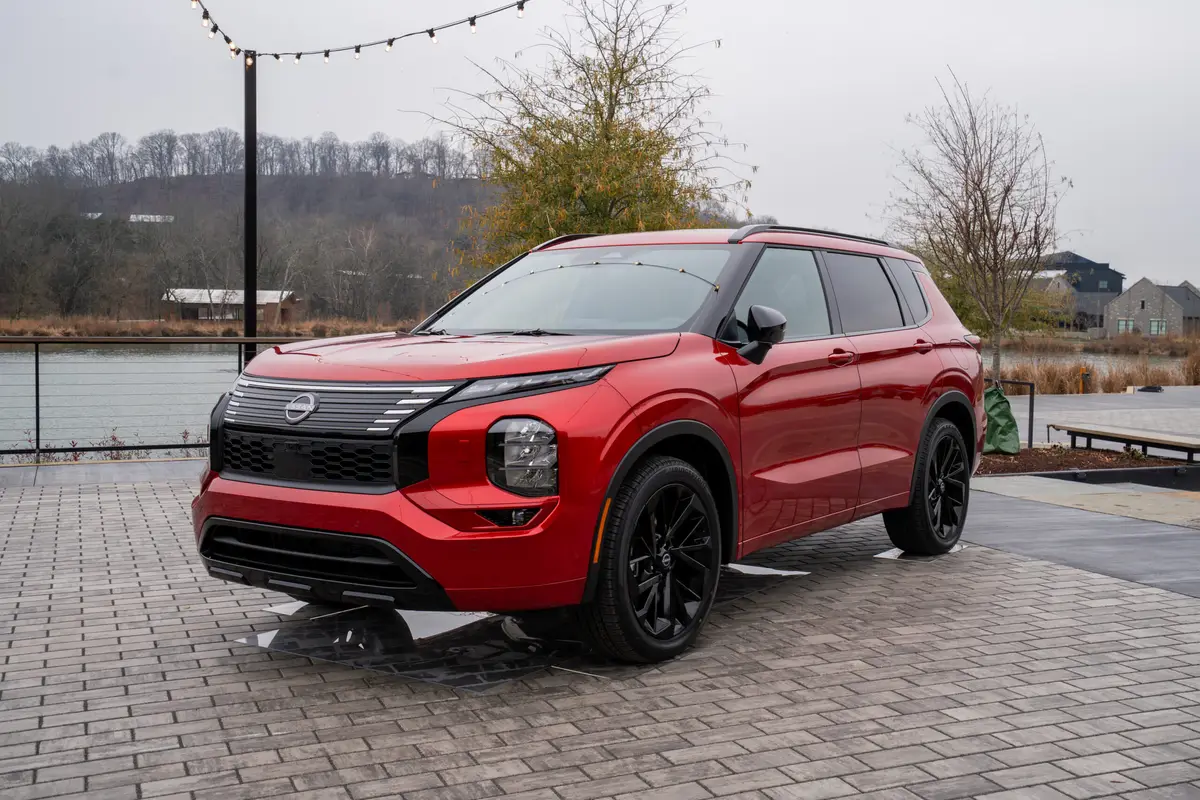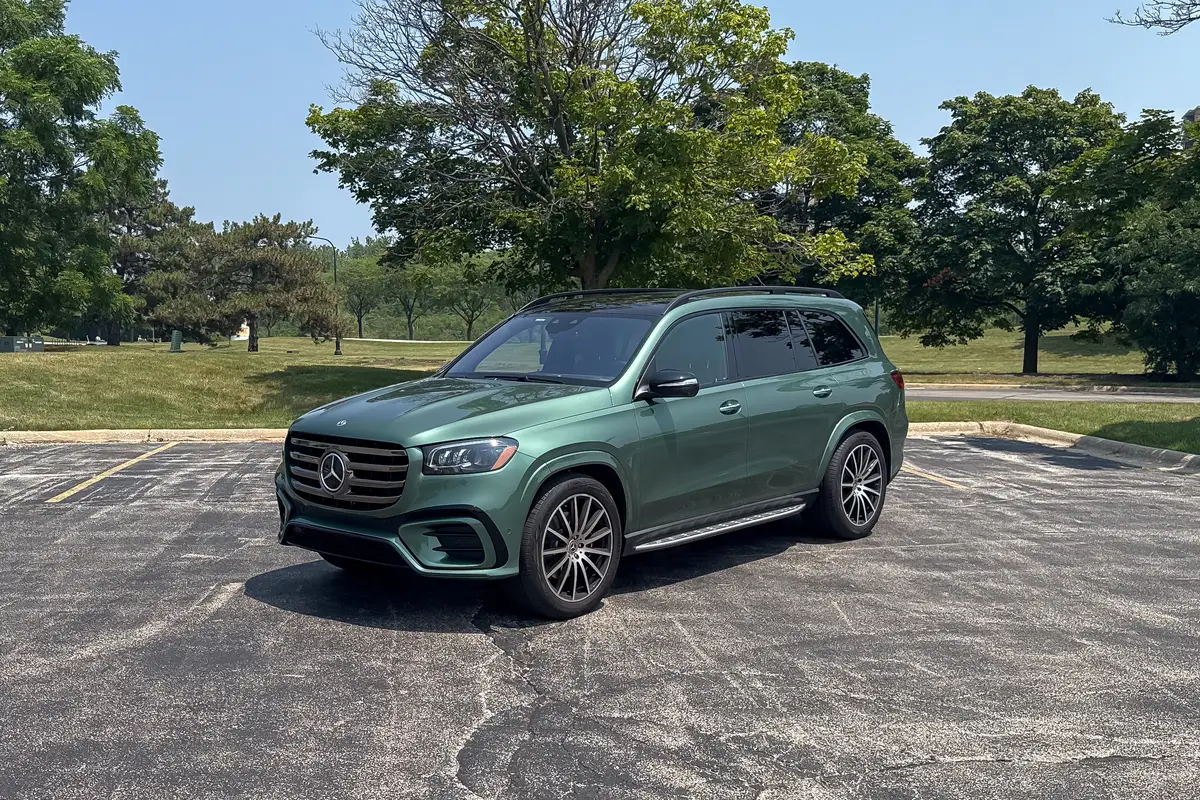Is the 2022 Nissan Pathfinder a Good SUV? 5 Pros and 3 Cons

With its 2022 redesign, the Nissan Pathfinder has edged back toward its rugged roots with at least some off-road capability. But the update is more about strengthening the Pathfinder’s primary role as a comfortable and practical choice for those seeking a mid-size SUV with three rows of seats.
Related: 2022 Nissan Pathfinder Review: Outdoor Adventure Wagon Rebooted
Introduced in the mid-1980s as a chunky, truck-based SUV that was more at home on unpaved roads than parking lots, the Pathfinder evolved over the years into more of a mall-hopper. By the time the previous generation rolled into showrooms, the Pathfinder had become a somewhat bland car-based family hauler without much to distinguish it in a crowded field of competitors.
With this model-year 2022 update, the new Pathfinder is still aimed squarely at the same audience, but there are big improvements — inside and out. It gets a stylish interior, usable third row and a new transmission. These, plus other tweaks, help give it the ability to tackle moderate off-pavement ventures.
Overall, the 2022 Pathfinder is a much more compelling SUV, but it’s not without a few faults. Here are five things we like about the 2022 Nissan Pathfinder and three things that need work.
Things We Like
1. No More CVT
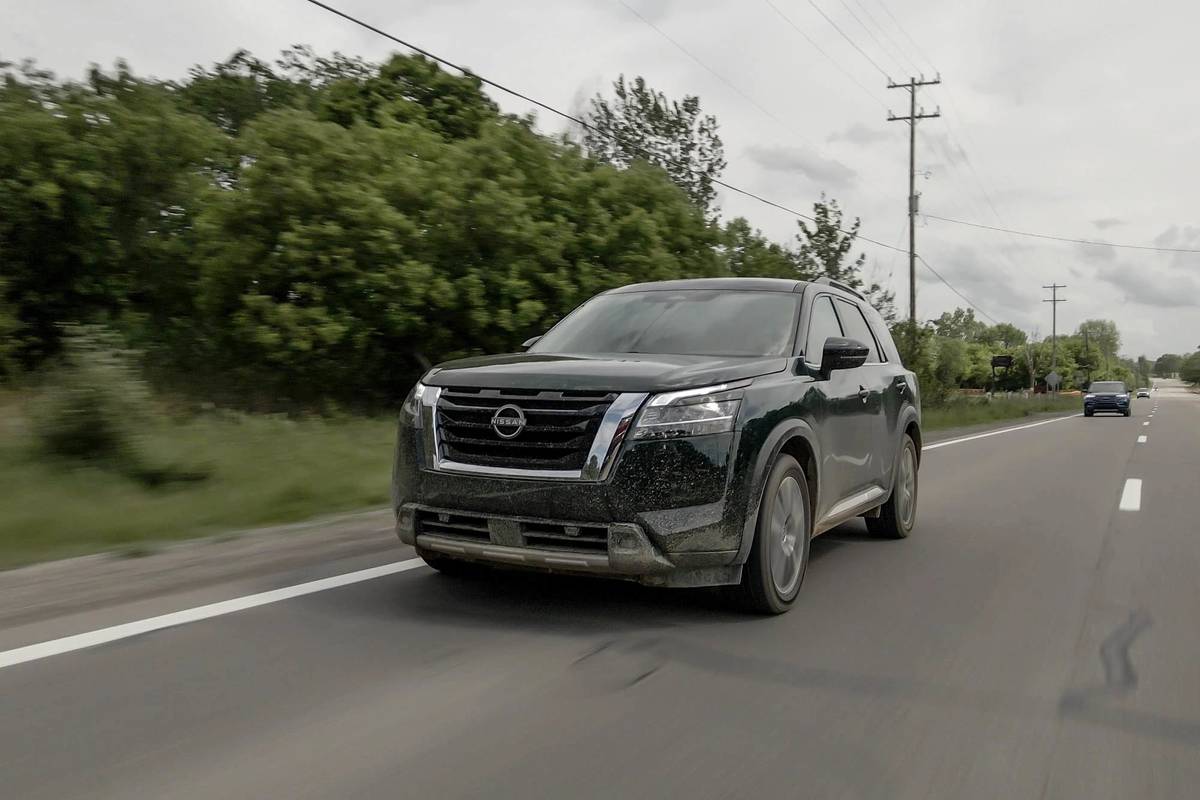
The new Pathfinder uses the same 284-horsepower, 3.5-liter V-6 as the old model, but the big news is Nissan killed the continuously variable automatic transmission in favor of a conventional nine-speed automatic. The result is a smooth and refined powertrain, and one better suited for off-roading. Another benefit is increased towing capacity. Better still, all-wheel-drive models get a 1-mpg bump in overall fuel economy compared to the old Pathfinder.
2. Family Room
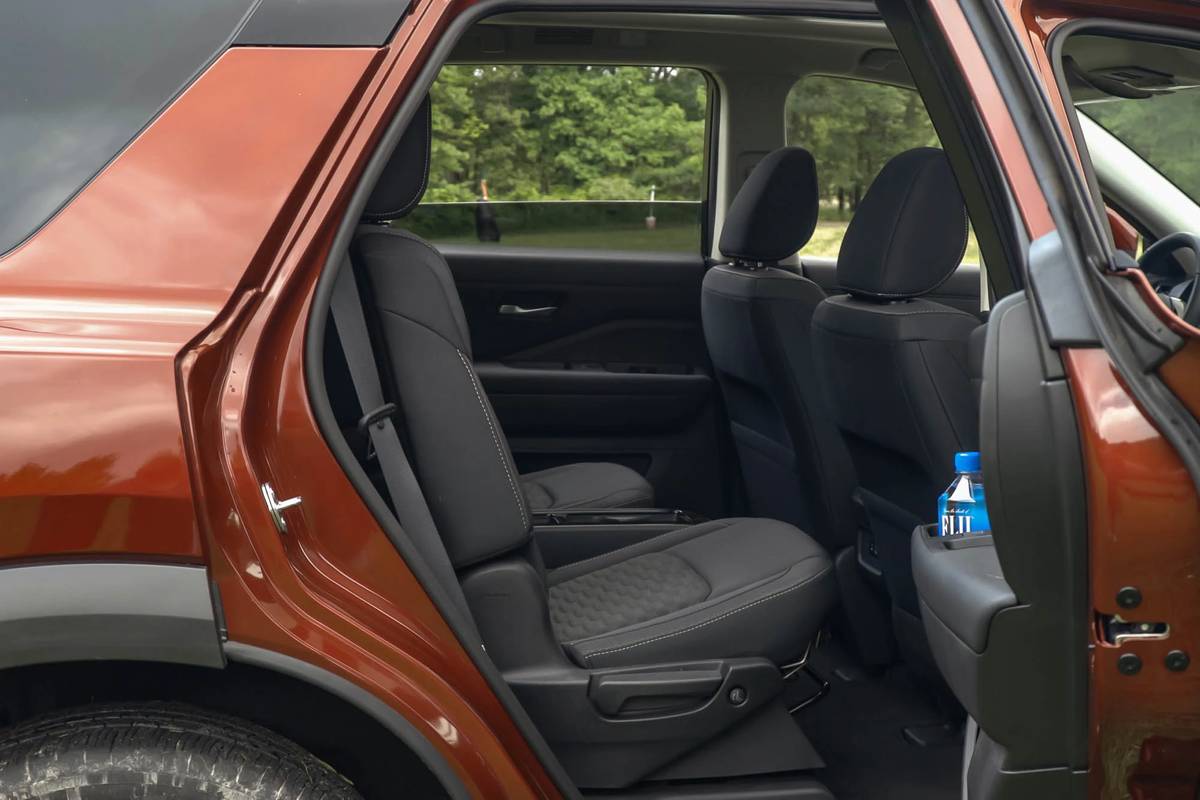
Inside, the 2022 Pathfinder gets a significant upgrade, with a more contemporary look and improved materials and electronics. The front and middle rows have plenty of room, and the second row has a one-touch slide-and-tilt feature for easier access to the third row; it works even with child safety seats in place. Once in the third row, even adult-sized humans will find adequate room.
3. Updated Electronics
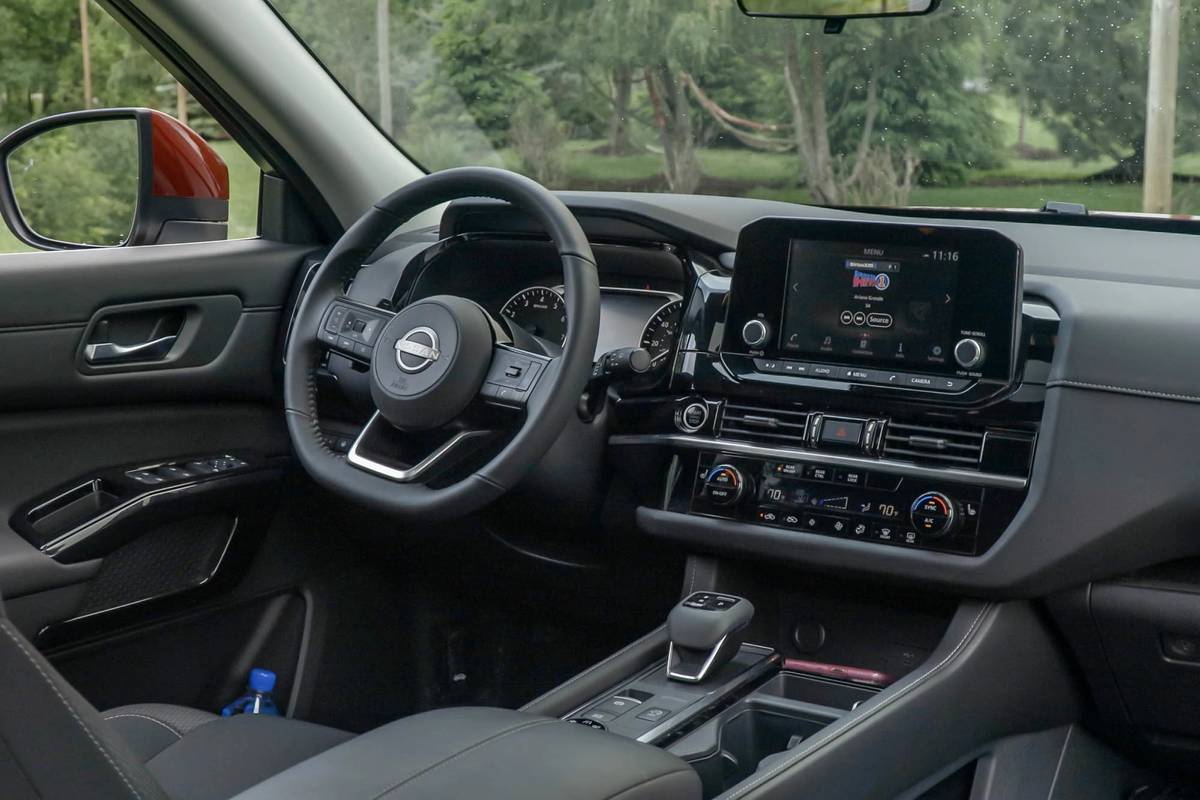
The available multimedia system uses a 9.0-inch touchscreen mounted high on the dash where it’s easy to see and use, with clear graphics and straightforward menus. An optional 12.3-inch digital gauge cluster offers all kinds of information and is customizable. You can also spring for a 10.8-inch head-up display, which projects important information ahead of the driver. Android Auto and Apple CarPlay are standard, and Wi-Fi connectivity with wireless charging is optional.
4. Safety Features
The redesigned Pathfinder gets a host of new standard safety equipment, including automatic emergency braking with pedestrian detection, lane departure warning, rear cross-traffic alert, blind spot warning, high-beam assist and rear automatic braking. Also standard are a driver alertness sensor, rear door alert system and rear sonar for backing up. Optional features include blind spot intervention, lane keep assist and traffic sign recognition. Nissan’s ProPilot Assist cruise control, which helps steer on the highway if the driver maintains contact with the steering wheel, is also available.
5. Off-Road Capability
It’s no rock crawler, but Nissan has taken steps to make sure the Pathfinder is more off-road worthy than some of its competitors. Selectable drive modes optimize power delivery by letting drivers dial up settings for dirt, snow, sand and even mud and ruts. There’s a separate button to engage the automatic hill descent control, and the Pathfinder proved up to the job of moderate off-roading during our drive.
Things We Don’t Like
1. Heavy Feel
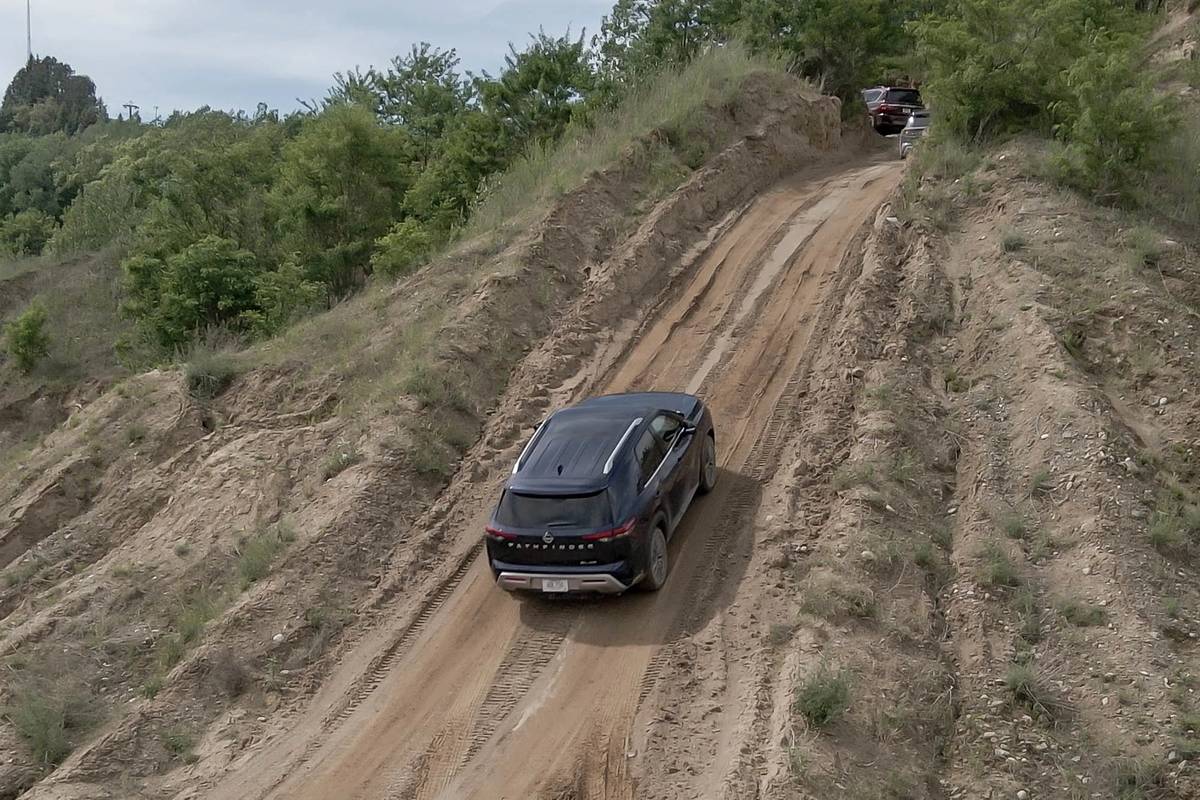
The Pathfinder rides well, but it feels every bit the honking SUV from behind the wheel. It leans into turns with considerable understeer, nosedives under hard braking and squats low under acceleration. The overall feeling is somewhat ponderous, and the Pathfinder seems much more at home when driven with more restraint. Shifting into Sport mode tightens up steering feel, but the Pathfinder is not one of the more athletic choices in this class.
2. Road Noise
Large wheels and low-profile tires contribute to the redesigned Pathfinder’s aggressive looks, but they extract a penalty in road noise — particularly as speed increases. It’s admittedly a relatively minor gripe, but the noise from below seems all the more intrusive given the lack of wind noise and overall serenity in the cabin.
3. Higher Prices
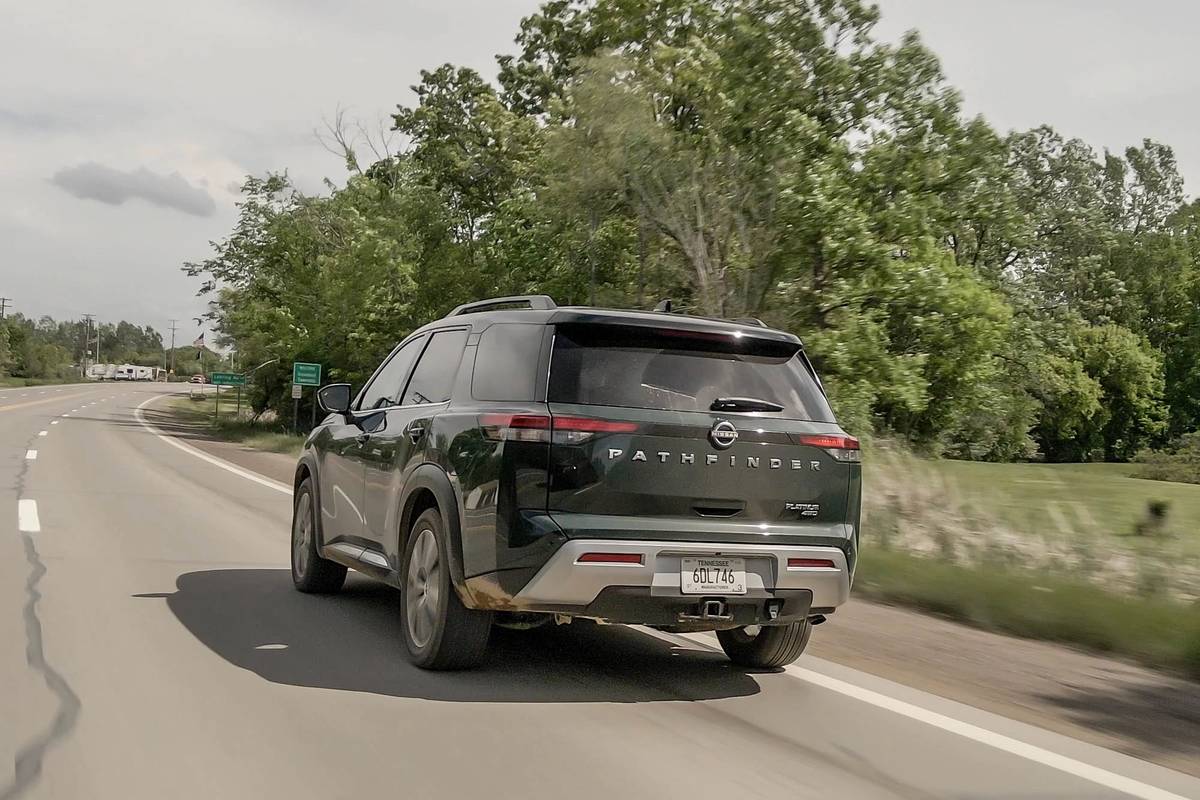
The new Pathfinder comes with a lot more standard equipment and advanced safety features but these improvements come at a cost. Getting into a 2022 Pathfinder will set you back a bit more than the 2020 model it replaces. Prices start at $34,560 for a front-wheel drive model in base S trim, about $1,400 more than its 2020 counterpart (the Pathfinder skipped model-year 2021). A top-trim Platinum model with four-wheel drive starts at almost $50,000 (all prices include destination). Nissan has simplified pricing for 2022, with just four trims and two option packages.
Related Video: 2022 Nissan Pathfinder First Drive
More From Cars.com:
- 2022 Nissan Pathfinder: Going Rogue
- What’s New With SUVs for 2021?
- Nissan Launches Online Shopping Program
- 2021 Nissan Armada: 5 Pros, 4 Cons
Cars.com’s Editorial department is your source for automotive news and reviews. In line with Cars.com’s long-standing ethics policy, editors and reviewers don’t accept gifts or free trips from automakers. The Editorial department is independent of Cars.com’s advertising, sales and sponsored content departments.
Featured stories
